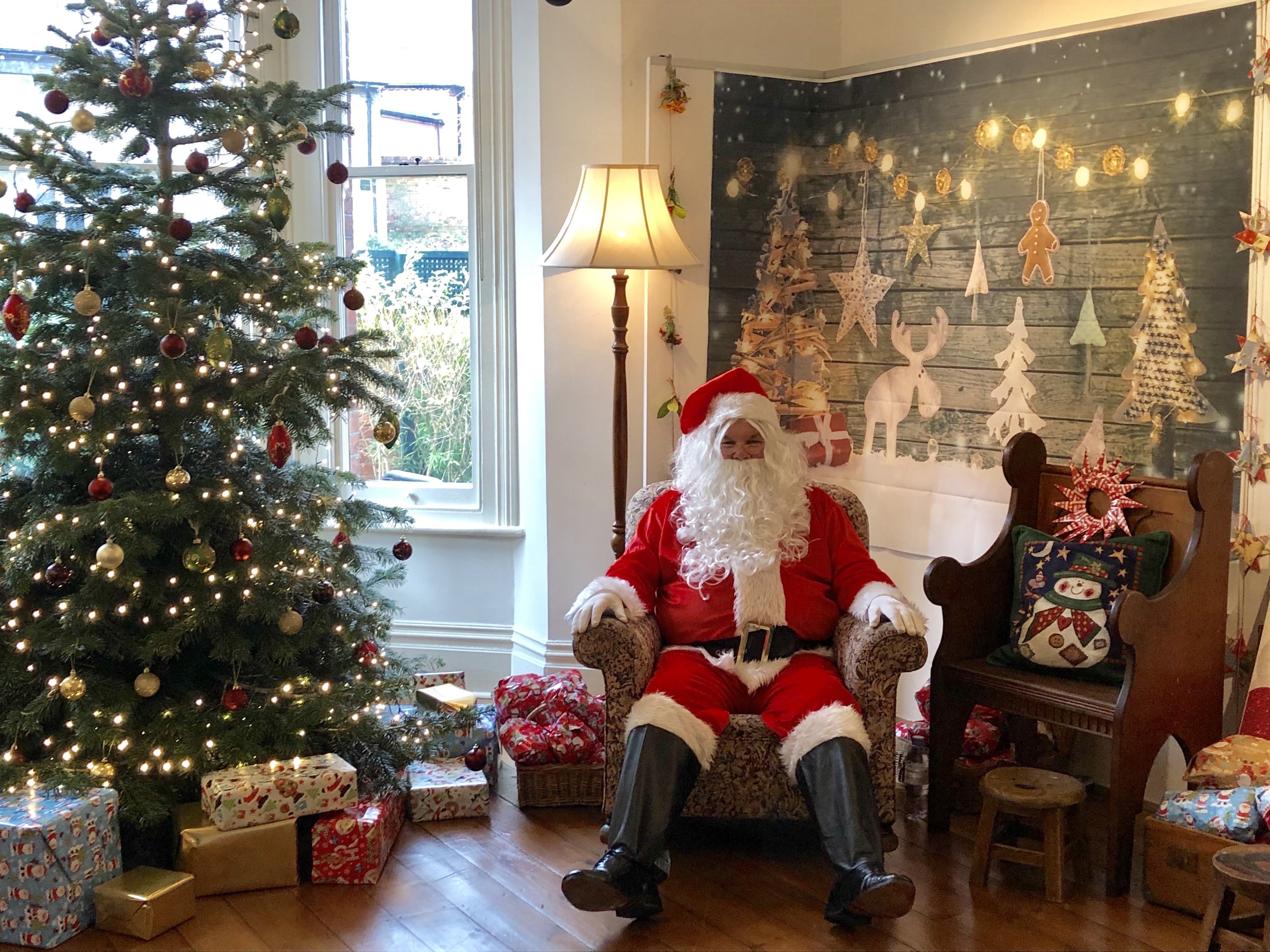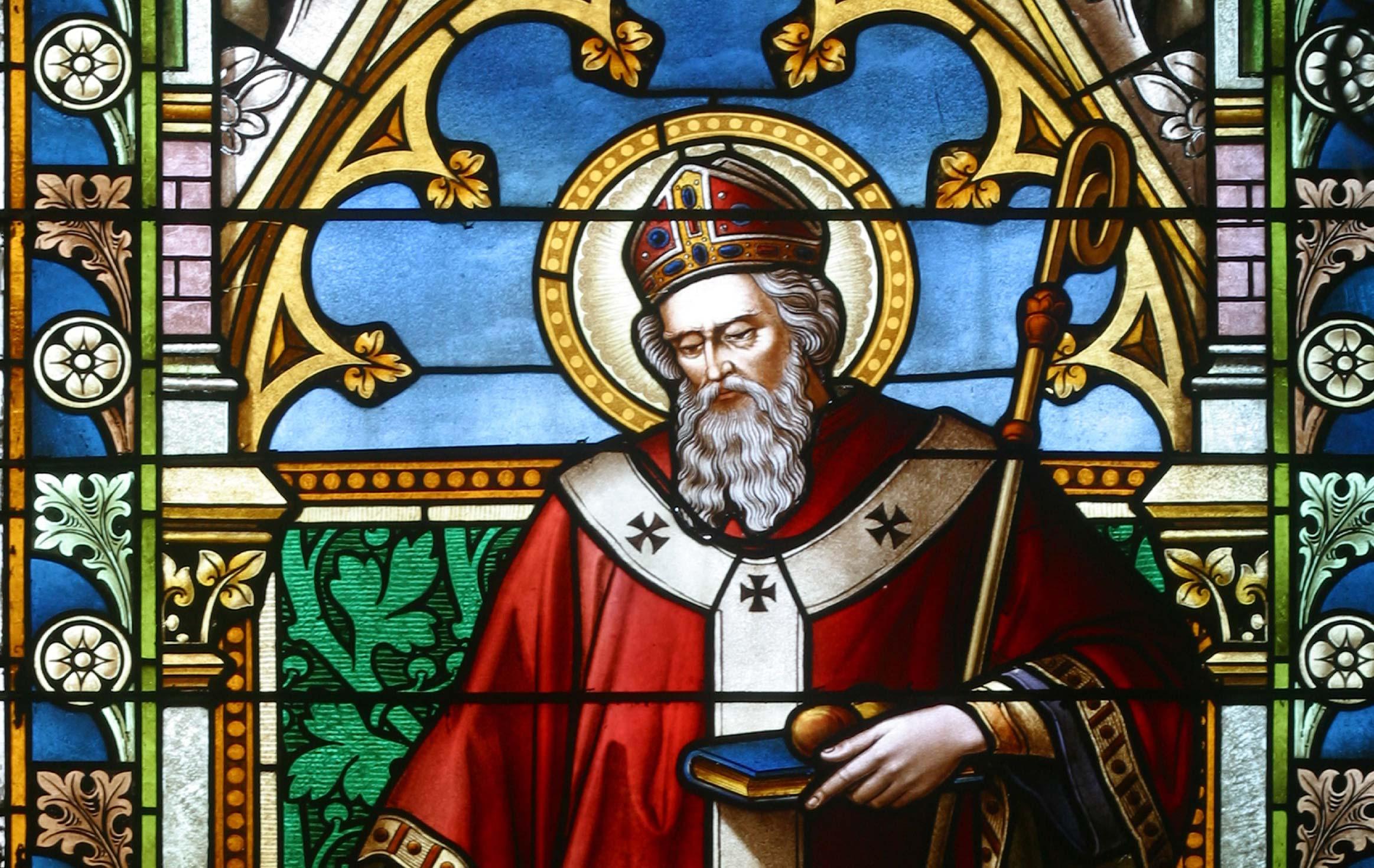Why is Santa giving gifts at the Panacea and not Father Christmas?
‘Santa’ and gift-giving come from St Nicholas. St Nicholas was an early Christian cleric of Greek descent born during the Roman Empire in the southern coastal region of today’s Turkey. Bishop of Myra (Demre) in the 4th century BCE, St Nicholas is believed to have been imprisoned and tortured for his faith. He is especially remembered for the story of giving money as dowries for the daughters of a poor family.
Many miracles are attributed to St Nicholas and he became patron saint of many people including children. His patronage of children is celebrated with gift-giving to children on 5th and 6th December in the Netherlands, Northern France, and Western Germany. Colonists took this tradition to North America in the 17th century. The Dutch name for St Nicholas is Sinterklaas which over time became Santa Claus. By the 1880s illustrations show Santa as a cheery older man with white hair and beard often in red and white clothing. Coca Cola starting using Santa in their marketing in the 1930s. In the 20th century with the development of travel, film and media the image and activity of Santa Claus giving presents has become global and a readily recognised symbol of Christmas.
So who is Father Christmas?
The earliest written information about ‘Christmas’ as a person comes from a 15th century carol, which refers to “Sir Christëmas” who tells the audience of the news of Christ’s birth and to “Make good cheer and be right merry”. In the 16th and 17th centuries festivities often created characters referred to as “Lords of Misrule” with names such as ‘Prince Christmas’ and ‘Captain Christmas’.
The earliest reference to ‘Christmas’ as an older man and a father is in a play by Ben Johnson called ‘Christmas, His Masque’, from 1616, where ‘Old Christmas’ complains he is not allowed to party even though he is a good Christian. In 1658 an anti-Puritan pamphlet survives called “The examination and tryall of old Father Christmas”; he is acquitted by the jury.
Until the Victorian Era Father Christmas was associated with feasting and games, partying in the adult world. During the 19th century Father Christmas starts to take on a more familiar look, and may be the basis for the ‘Ghost of Christmas Present’ in Charles Dickins ‘A Christmas Carol’ published in 1843.
 Santa at the Panacea Museum
Santa at the Panacea Museum
In 1864 Santa Claus and Father Christmas appear together in a story by Susanna Warner, Santa brings gifts and Father Christmas appears in a Mummers Play. At this time there were also stories of fairies bringing gifts in secret. The fairies were soon replaced by Santa though. By the end of the 19th century, Father Christmas had taken on the image and gift-giving of Santa Claus.
What did the Panacea Society do?
The Society did celebrate Christmas, and from the rules they typed out and gave to members we know it included prayers and feasting, and from the number of wine glasses in the museum collection we suspect they enjoyed a little drink too. We also know they exchanged gifts, and Octavia sent out Christmas greetings cards.
The members of the Society were adults, many did not have children and those that did their families did not always take part. The Society were also Imperialists and disliked “non-British” ideas. It seems unlikely that Santa Claus came to Number 12 Albany Road or The Haven at that time, and if he had he would probably have been called Father Christmas.
English Heritage have written a great article about Father Christmas and Santa Claus here: https://www.english-heritage.org.uk/christmas/the-history-of-father-christmas/
Santa will be flying in to the Panacea Museum again this year on Saturday 7th December-
Find all the details here: Santa at the Panacea .







